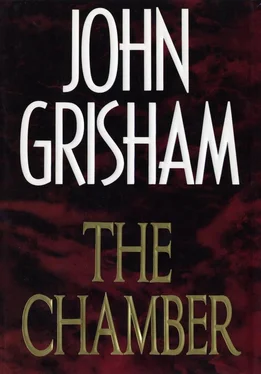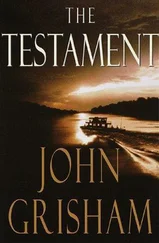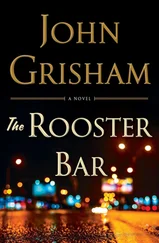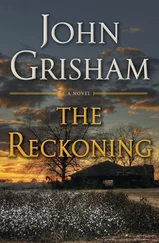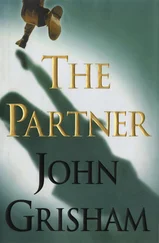Adam Hall had one of the brochures in his thin file as he eased slowly along the hallway on floor sixty-one, headed in the general direction of the office of E. Garner Goodman. He nodded and spoke to another young lawyer, one he’d never seen before. At the firm Christmas party name tags were distributed at the door. Some of the partners barely knew each other. Some of the associates saw each other once or twice a year. He opened a door and entered a small room where a secretary stopped typing and almost smiled. He asked for Mr. Goodman, and she nodded properly to a row of chairs where he was to wait. He was five minutes early for a 10 A.M. appointment, as if it mattered. This was pro bono now. Forget the clock. Forget billable hours. Forget performance bonuses. In defiance of the rest of the firm, Goodman allowed no clocks on his walls.
Adam flipped through his file. He chuckled at the brochure. He read again his own little résumé — college at Pepperdine, law school at Michigan, editor of the law review, case note on cruel and unusual punishment, comments on recent death penalty cases. A rather short résumé, but then he was only twenty-six. He’d been employed at Kravitz & Bane for all of nine months now.
He read and made notes from two lengthy U.S. Supreme Court decisions dealing with executions in California. He checked his watch, and read some more. The secretary eventually offered coffee, which he politely declined.
The office of E. Garner Goodman was a stunning study in disorganization. It was large but cramped, with sagging bookshelves on every wall and stacks of dusty files covering the floor. Little piles of papers of all sorts and sizes covered the desk in the center of the office. Refuse, rubbish, and lost letters covered the rug under the desk. If not for the closed wooden blinds, the large window could have provided a splendid view of Lake Michigan, but it was obvious Mr. Goodman spent no time at his window.
He was an old man with a neat gray beard and bushy gray hair. His white shirt was painfully starched. A green paisley bow tie, his trademark, was tied precisely under his chin. Adam entered the room and cautiously weaved around the piles of papers. Goodman did not stand but offered his hand with a cold greeting.
Adam handed the file to Goodman, and sat in the only empty chair in the room. He waited nervously while the file was studied, the beard was gently stroked, the bow tie was tinkered with.
“Why do you want to do pro bono work?” Goodman mumbled after a long silence. He did not look up from the file. Classical guitar music drifted softly from recessed speakers in the ceiling.
Adam shifted uncomfortably. “Uh, different reasons.”
“Let me guess. You want to serve humanity, give something back to your community, or, perhaps, you feel guilty because you spend so much time here in this sweatshop billing by the hour that you want to cleanse your soul, get your hands dirty, do some honest work, and help other people.” Goodman’s beady blue eyes darted at Adam from above the black-framed reading spectacles perched on the tip of his rather pointed nose. “Any of the above?”
“Not really.”
Goodman continued scanning the file. “So you’ve been assigned to Emmitt Wycoff?” He was reading a letter from Wycoff, Adam’s supervising partner.
“Yes sir.”
“He’s a fine lawyer. I don’t particularly care for him, but he’s got a great criminal mind, you know. Probably one of our top three white-collar boys. Pretty abrasive, though, don’t you think?”
“He’s okay.”
“How long have you been under him?”
“Since I started. Nine months ago.”
“So you’ve been here for nine months?”
“Yes sir.”
“What do you think of it?” Goodman closed the file and stared at Adam. He slowly removed the reading glasses and stuck one stem in his mouth.
“I like it, so far. It’s challenging.”
“Of course. Why did you pick Kravitz & Bane? I mean, surely with your credentials you could’ve gone anywhere. Why here?”
“Criminal litigation. That’s what I want, and this firm has a reputation.”
“How many offers did you have? Come on, I’m just being curious.”
“Several.”
“And where were they?”
“D.C. mainly. One in Denver. I didn’t interview with New York firms.”
“How much money did we offer you?”
Adam shifted again. Goodman was, after all, a partner. Surely he knew what the firm was paying new associates. “Sixty or so. What are we paying you?”
This amused the old man, and he smiled for the first time. “They pay me four hundred thousand dollars a year to give away their time so they can pat themselves on the back and preach about lawyers and about social responsibility. Four hundred thousand, can you believe it?”
Adam had heard the rumors. “You’re not complaining, are you?”
“No. I’m the luckiest lawyer in town, Mr. Hall. I get paid a truckload of money for doing work I enjoy, and I punch no clock and don’t worry about billing. It’s a lawyer’s dream. That’s why I still bust my ass sixty hours a week. I’m almost seventy, you know.”
The legend around the firm was that Goodman, as a younger man, succumbed to the pressure and almost killed himself with liquor and pills. He dried out for a year while his wife took the kids and left him, then he convinced the partners he was worth saving. He just needed an office where life did not revolve around a clock.
“What kind of work are you doing for Emmitt Wycoff?” Goodman asked.
“Lot of research. Right now he’s defending a bunch of defense contractors, and that takes most of my time. I argued a motion in court last week.” Adam said this with a touch of pride. Rookies were usually kept chained to their desks for the first twelve months.
“A real motion?” Goodman asked, in awe.
“Yes sir.”
“In a real courtroom?”
“Yes sir.”
“Before a real judge?”
“You got it.”
“Who won?”
“Judge ruled for the prosecution, but it was close. I really tied him in knots.” Goodman smiled at this, but the game was quickly over. He opened the file again.
“Wycoff sends along a pretty strong letter of recommendation. That’s out of character for him.”
“He recognizes talent,” Adam said with a smile.
“I assume this is a rather significant request, Mr. Hall. Just what is it you have in mind?”
Adam stopped smiling and cleared his throat. He was suddenly nervous, and decided to recross his legs. “It’s, uh, well, it’s a death penalty case.”
“A death penalty case?” Goodman repeated.
“Yes sir.”
“Why?”
“I’m opposed to the death penalty.”
“Aren’t we all, Mr. Hall? I’ve written books about it. I’ve handled two dozen of these damned things. Why do you want to get involved?”
“I’ve read your books. I just want to help.”
Goodman closed the file again and leaned on his desk. Two pieces of paper slid off and fluttered to the floor. “You’re too young and you’re too green.”
“You might be surprised.”
“Look, Mr. Hall, this is not the same as counseling winos at a soup kitchen. This is life and death. This is high pressure stuff, son. It’s not a lot of fun.”
Adam nodded but said nothing. His eyes were locked onto Goodman’s, and he refused to blink. A phone rang somewhere in the distance, but they both ignored it.
“Any particular case, or do you have a new client for Kravitz & Bane?” Goodman asked.
“The Cayhall case,” Adam said slowly.
Goodman shook his head and tugged at the edges of his bow tie. “Sam Cayhall just fired us. The Fifth Circuit ruled last week that he does indeed have the right to terminate our representation.”
Читать дальше
